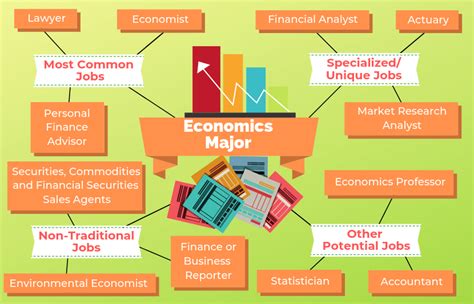The field of business economics combines the principles of economics with business practices, providing graduates with a comprehensive understanding of the factors that influence business decisions and economic outcomes. A business economics degree opens doors to a wide range of career opportunities in industries such as finance, consulting, and government, among others.

Top Jobs for Business Economics Graduates
According to the U.S. Bureau of Labor Statistics (BLS), the following are the top jobs for individuals with a bachelor’s degree in business economics:
| Job Title | Median Annual Salary |
|---|---|
| Financial Analyst | $85,660 |
| Market Research Analyst | $63,920 |
| Operations Research Analyst | $88,600 |
| Management Consultant | $93,230 |
| Actuary | $114,690 |
Note: Salaries may vary depending on experience, location, and industry.
Career Paths with a Business Economics Degree
The versatility of a business economics degree allows graduates to pursue diverse career paths. Some of the common career paths include:
- Finance: Business economists analyze financial data, evaluate investments, and advise clients on financial decisions in roles such as financial analysts, portfolio managers, and investment bankers.
- Consulting: Business economists provide expertise in economic analysis, forecasting, and strategy development for businesses and organizations in various industries.
- Government: Business economists work in government agencies, central banks, and regulatory bodies, analyzing economic trends, forecasting economic growth, and developing policies.
- Academia: Business economists conduct research, teach courses, and write publications in higher education institutions.
- Other: Business economists may also find opportunities in sales, marketing, economic development, and international business.
Benefits of a Business Economics Degree
Analytical Skills Development
A business economics degree develops analytical skills, including data analysis, modeling, and forecasting, which are essential for understanding and solving business problems.
Quantitative Proficiency
Business economists gain proficiency in quantitative methods, such as econometrics, statistics, and calculus, which allows them to analyze complex economic data and draw informed conclusions.
Economic Understanding
The curriculum provides a deep understanding of economic principles, market dynamics, and global economic trends, equipping graduates with a solid foundation in business decision-making.
Communication and Presentation Skills
Through coursework and projects, business economics graduates develop strong communication and presentation skills, enabling them to effectively convey their insights to various audiences.
Problem-Solving Ability
The program emphasizes problem-solving skills, teaching graduates how to analyze problems, identify solutions, and make data-driven decisions.
New Application for Business Economics Degree: Economic Innovation (Econovation)
Econovation: A new term coined to describe the application of business economics principles to drive innovation.
Business economists can use their analytical, quantitative, and economic understanding to identify new opportunities, assess market potential, and develop innovative solutions that address economic challenges and create value.
For example, business economists can:
- Analyze market trends to identify unmet needs and develop new products or services.
- Evaluate the economic feasibility of new technologies and assess their potential impact.
- Develop strategies to optimize resource allocation and improve supply chain efficiency.
Salary and Job Outlook
According to the BLS, the median annual salary for economists was $113,040 in May 2021, with the top 10% earning over $190,190. The projected job growth for economists is 6% from 2021 to 2031, which is faster than the average for all occupations.
Conclusion
A business economics degree provides graduates with a solid foundation in economic principles, analytical skills, and problem-solving abilities, making them highly sought after in various industries and career paths. The degree’s versatility allows graduates to pursue diverse opportunities and contribute to economic growth and innovation.
Frequently Asked Questions (FAQs)
1. What industries hire business economics graduates?
Business economics graduates are hired in finance, consulting, government, academia, and a wide range of other industries.
2. What are the starting salaries for business economics graduates?
Starting salaries vary depending on experience, location, and industry, but typically range from $50,000 to $70,000.
3. What is the job outlook for business economists?
The job outlook for economists is expected to grow 6% from 2021 to 2031, which is faster than the average for all occupations.
4. What are the benefits of a business economics degree?
Benefits include analytical skills development, quantitative proficiency, economic understanding, communication skills, and problem-solving ability.
5. What is Econovation?
Econovation is a new term describing the application of business economics principles to drive innovation.
6. What is the salary range for business economists?
The median annual salary for economists in May 2021 was $113,040, with the top 10% earning over $190,190.
7. What are the differences between business economics and other economics disciplines?
Business economics focuses on the application of economic principles to business decision-making, while other economics disciplines, such as economic theory or international economics, have a more theoretical or specialized focus.
8. Is a graduate degree required for a career in business economics?
While a bachelor’s degree is typically the minimum requirement, a graduate degree (e.g., Master’s in Business Economics) can enhance career prospects and earning potential.
